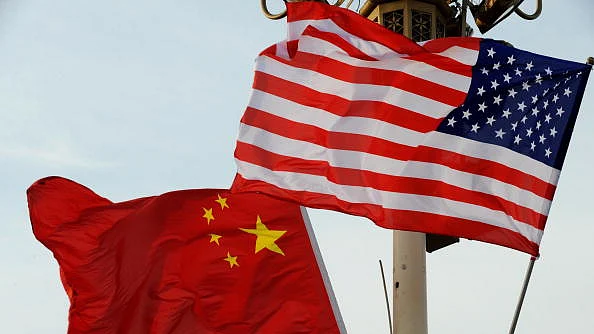US-China trade war escalates: Beijing raises tariff, accuses Washington of bullying
China imposed new tariff hikes on US goods on Monday, September 24 and accused Washington of bullying, giving no sign of compromise

The ongoing trade war between the US and China further escalated on Monday, September 24 as the two economic powerhouses slapped each other with the largest rounds of tariffs yet, unleashing punitive duties now on roughly half of their traded goods.
China imposed new tariff hikes on US goods on Monday, September 24 and accused Washington of bullying, giving no sign of compromise in an intensifying battle over technology that is weighing on global economic growth.
President Donald Trump's new 10 per cent tariff on $200 billion of Chinese goods went into effect on Monday, September 24, spanning thousands of products, including food seasonings, baseball gloves, network routers and industrial machinery parts.
It immediately prompted Beijing to respond with tariffs on $60 billion in American goods, approaching the point of running out of American products to target, reported The Washington Post. The latest levies from Beijing affect more than 5,200 kinds of American imports, including chemicals, industrial wares and medical instruments.
Neither of the world's two largest economies showed signs of backing down and there are no further trade talks scheduled to resolve the dispute.
As the new tariffs hit, the Chinese government released a report accusing the Trump administration of a foreign policy based on "trade bullying" and "attempting to impose its own interests on China through extreme pressure".
"The new administration of the US government has trumpeted 'America First' since taking office in 2017, and has abandoned the fundamental norms of mutual respect and equal consultation that guide international relations," Xinhua news agency quoted the report as saying.
"Rather, it has brazenly preached unilateralism, protectionism and economic hegemony, making false accusations against many countries and regions, particularly China.
Thousands of goods now face border taxes of up to 10 per cent, including grocery store staples, household objects and industrial equipment.
Economists expect the cost of food, clothing, furniture, toys and cars to swell, triggering layoffs across industries in both countries.
Earlier in September, Trump had warned that retaliation from Beijing would spark another set of tariffs on $267 billion in Chinese goods, erecting financial barriers on virtually everything the US buys from the nation. In 2017, that order reached $505 billion.
The Asian giant imported $130 billion in US goods in 2017 but officials have said China will keep fighting back with "qualitative" measures.
The US tariffs are meant to punish China for what the Trump administration says are unfair trade practices, such as intellectual property theft.
With no settlement in sight, forecasters say the conflict between the two biggest economies could trim global economic growth through 2020
The Chinese government accused the Trump administration in a report of "trade bullyism" and of preaching "economic hegemony." The toughly worded report said Beijing wants a "reasonable solution" but gave no indication of possible concessions.
American officials say Chinese plans for state-led development of global competitors in robotics and other technologies violate its market-opening obligations and might erode US industrial leadership.
Communist leaders offered to narrow their politically sensitive, multi-billion-dollar trade surplus with the United States by purchasing more natural gas and other American exports. But they have rejected pressure to change industry plans they see as a path to prosperity and global influence. Envoys last met on August 22 in Washington but reported no progress.
With no settlement in sight, forecasters say the conflict between the two biggest economies could trim global economic growth through 2020.
Chinese regulators have tried to cushion the blow on their own economy by targeting American goods such as soybeans, natural gas, fruit, whisky and automobiles that are available from Europe, Latin America and other Asian countries.
It affirmed China's stance that it is a developing country, a claim that rankles Washington, Europe and other trading partners.
They point to China's status as a major manufacturer and a growing competitor in smartphones and other technology. They say Beijing is no longer entitled to concessions it was granted when it joined the World Trade Organization in 2001, such as the right to limit access to its finance, energy and other markets.
Chinese leaders have tried without success to recruit German, France, South Korea and other trading partners as allies against Washington. They criticize Trump's tactics but echo US complaints about Chinese market barriers and industry plans.
The American Chamber of Commerce in China warned Washington was underestimating Beijing's determination. It said a "downward spiral" seemed certain.
Chinese leaders have announced changes this year including tariff cuts and plans to end ownership limits in their auto industry.
But business people who have met senior planners say they express no willingness even to discuss changes to technology development plans.
As the fight intensifies, China is running out of US imports for retaliation.
Imports of American goods last year totaled $153.9 billion while the United States bought Chinese goods worth $429.8 billion, according to Chinese customs data. Monday, September 24's increase leaves Beijing with about $40 billion of goods for penalties while the Washington has almost $200 billion.
Follow us on: Facebook, Twitter, Google News, Instagram
Join our official telegram channel (@nationalherald) and stay updated with the latest headlines
